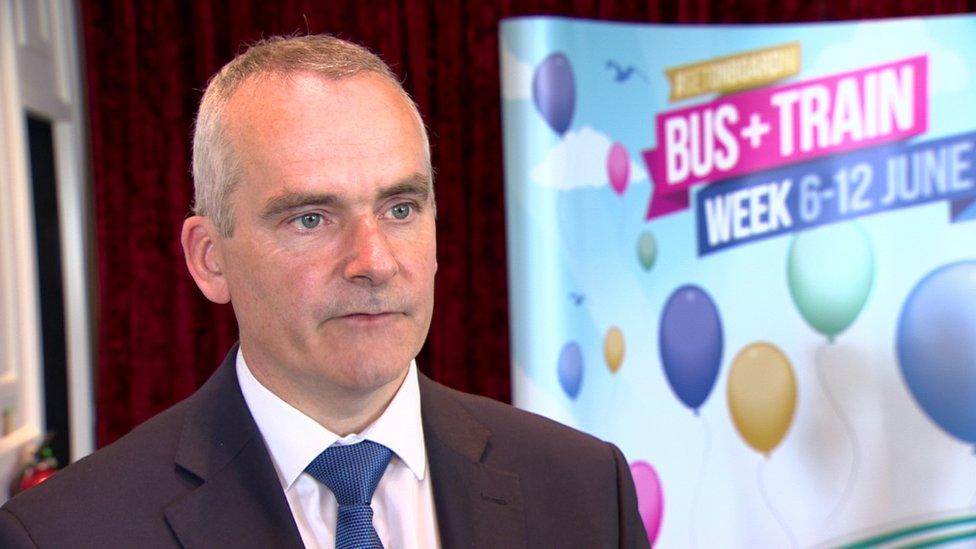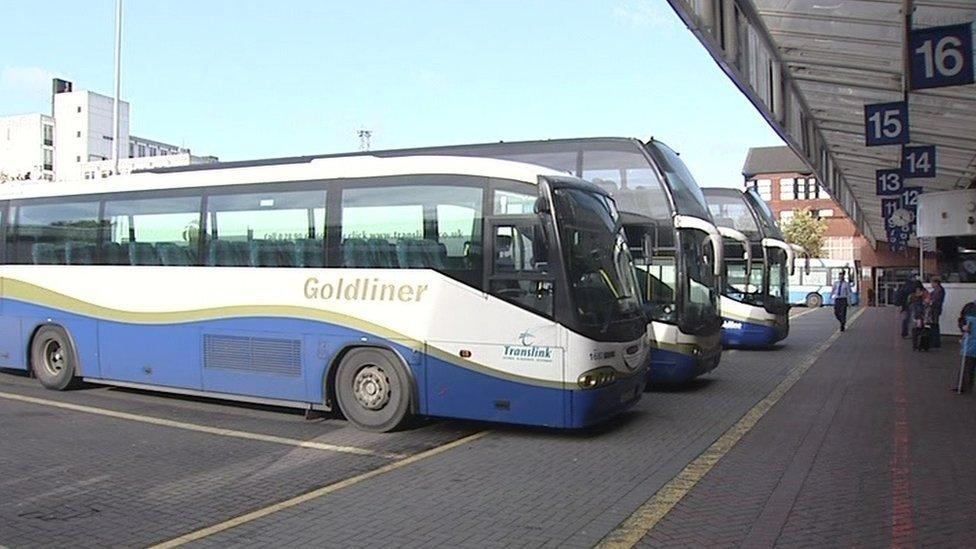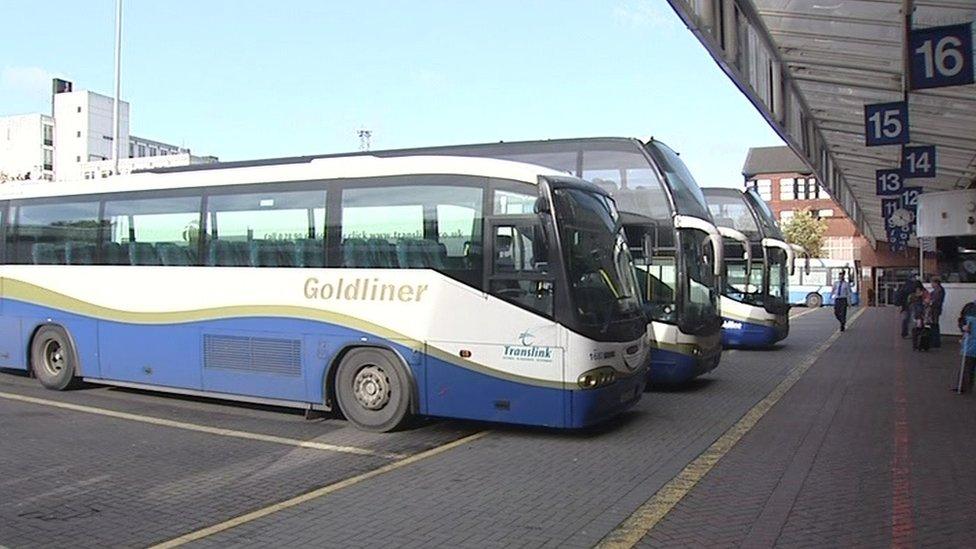Translink wants to see future fare increases linked to inflation
- Published

Chris Conway said "a big increase one year and a freeze the next" is not a good strategy
The Northern Ireland public transport provider Translink has said it would like to see fare increases in future linked to inflation.
Its chief executive Chris Conway said "a big increase one year and a freeze the next" is not a good strategy.
He was speaking at the launch of a plan to increase passenger journey numbers on buses and trains by 1m per year.
Fares were frozen in 2016 but followed an above-inflation 4% hike in 2015.
Any change in policy around fares would need agreement with the minister for infrastructure and the Consumer Council.
'Cost structure'
Mr Conway said "a better strategy is fares linked to the general economy" using the Consumer Price Index.
"I think that is a better strategy that helps people understand how fare increases link to what's happening in the general economy and how it links to our cost structure rather than having fares which are divorced from that and people then don't get an understanding of value," he said.
Mr Conway also talked of "more reasonable fare increases on an ongoing basis".
Translink has set a target to provide 85m journeys per year by 2021.
Currently, there are about 80m journeys each year, half of them on the rural Ulsterbus network.

Translink's plan pledges that it will "maintain value for money" for customers
But growth in recent years has almost exclusively been on Northern Ireland Railways.
Value
The plan, entitled Get On Board, has been developed in conjunction with the Department for Infrastructure.
In March, it was announced that fares across Translink services would be frozen for 2016.
The plan pledges that it will "maintain value for money" for customers.
However, it calls for "sufficient public funding", pointing out expenditure levels per head of population in Northern Ireland are about 60% what they are in England and Wales.
- Published25 March 2016
